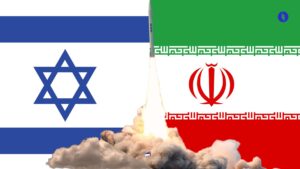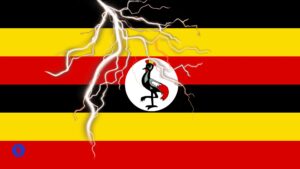If you live in Europe, chances are you joined a couple hundred million others and tuned into Eurovision on Saturday night – the world’s largest and longest-running annual TV music competition.
Where’s the intrigue in that? While we usually trudge through 200-page reports to get you briefed, this weekend we arguably endured something more: hours of smoke machines, sax solos, epic key-changes, latex vests, people on stilts, silky-smooth synth, gravity-defying sets, flute-wielding rappers, novelty trampolines, and glitter cannons. That’s how committed we are to you.
But if you think about it, Eurovision really is political by definition: born in 1956, it’s run by the Swiss-based European Broadcasting Union (EBU). The EBU initially had modest technical aims (figuring out cross-border broadcasts) but really, Eurovision quickly became about building post-WWII unity and solidarity.
Stay on top of your world from inside your inbox.
Subscribe for free today and receive way much more insights.
Trusted by 134,000+ subscribers
No spam. No noise. Unsubscribe any time.
And sure, there’s a litany of ‘no-politics‘ rules: organisers have deployed ‘anti-booing’ tech, and once banned Georgia for its 2009 song against Putin (‘We Don’t Wanna Put In‘ 🥁). They even published a list of banned non-national flags that casually lumped together (for example) the banners of both Scotland and ISIS.
But even with all these rules, the whole exercise absolutely oozes geopolitics. Here are just eight of the kinds of signals routinely sent via Eurovision.
1️⃣ There’ve been bans (eg, against Russia) and calls for bans (eg, against Israel this year), while regional rivals often trade boycotts. Jordan once even cut the contest’s local transmission when Israel won in 1978, and casually (if wrongly) told Jordanian viewers that Belgium had won.
2️⃣ For those that participate, it’s often about projecting ‘soft power‘. And of course, it works the other way, too: France’s foreign minister once got so outraged by his country’s poor performance, he got his foreign ministry involved. For many post-Soviet countries, Eurovision has also helped project national identities to the world.
3️⃣ But still, Eurovision acts have sent plenty of specific political messages over the years – whether the love ballad about the Maastricht Treaty (sounds catchy), the debt crisis (🤘), health policy (what a banger), and beyond.
4️⃣ Sometimes the signal is so subtle, folks still debate if it even happened – eg, was Spain’s 1982 rendition of a tango (the genre born in Argentina) a subtle protest against the UK’s role in the war with Argentina?
5️⃣ And sometimes, the signal is unintentional: Portugal’s military secretly chose the country’s 1974 Eurovision entry as a covert signal to commence its operation to topple the country’s dictatorship (which is exactly what then happened).
Or take Azerbaijan, which fire-hosed a record $180M at its 2012 host duties, only to then undo any branding benefits by detaining 43 of its own citizens who had dared to vote for regional rival, Armenia.
6️⃣ Sometimes, it’s about the signal that viewers want to send with their vote, such as the way Ukraine’s 2022 win reflected Europe’s post-invasion solidarity (though Ukraine was already a serious Eurovision player).
7️⃣ And sometimes those audience signals are unplanned – there was a stunned silence in 1993 when the hosts invited votes from besieged Sarajevo, but the line went dead; then a big audience cheer erupted when a voice finally came through. That local audience reaction signalled solidarity with a place enduring a brutal, years-long siege.
8️⃣ And yes, sometimes the signals are undesired. When Sweden didn’t allocate any votes to local rival Norway in 1995, Sweden’s ambassador had to spend days calming tensions. Likewise when Azerbaijan didn’t cast any votes for Russia in 2013, Putin dispatched his foreign minister to Baku to object to this “outrageous action“.
All these high stakes partly explain why the voting rules have changed a couple of dozen times since 1956. They also help explain why a couple hundred million folks keep tuning in each year. People – and governments – really care.
INTRIGUE’S TAKE
So once you see Eurovision in the above context, it feels a bit obvious to declare that geopolitics permeates the song contest. Like soccer permeates the FIFA world cup, or chicken permeates KFC, geopolitics is arguably the whole point – in this case, to put wind in the sails of the European project.
But the contest’s success has still raised some interesting dilemmas.
- For some of the more authoritarian participants, there’s tension between wanting to reject the liberalism on display, fearing the popular rejection that lurks, and yet craving the affirmation on offer
- For the founding Western European countries, there’s the cultural triumph in expanding the Eurovision orbit and yet, as more countries join, there’s also a loss of control (a rather neat echo of the EU itself), and
- At its heart, Eurovision is still weighing in on big and fundamentally political questions, like… what’s Europe? With (for example) Australia now participating, is Europe now more an idea than a location?
Oh, and so who won this year? As Europe grapples with its biggest land war since WWII, there’s something almost inevitable about the fact that a country relentlessly devoted to neutrality ended up taking home the glass microphone: Switzerland.
Also worth noting:
- Sweden (last year’s winner) hosted this weekend’s final, with Sweden’s Crown Princess (Victoria) kicking things off on Saturday night.
- There’ve been attempts at launching rival contests over the years: the Soviets tried the Intervision Song Contest which lasted four years. And after Turkey left Eurovision in 2012 it tried Turkvision.








